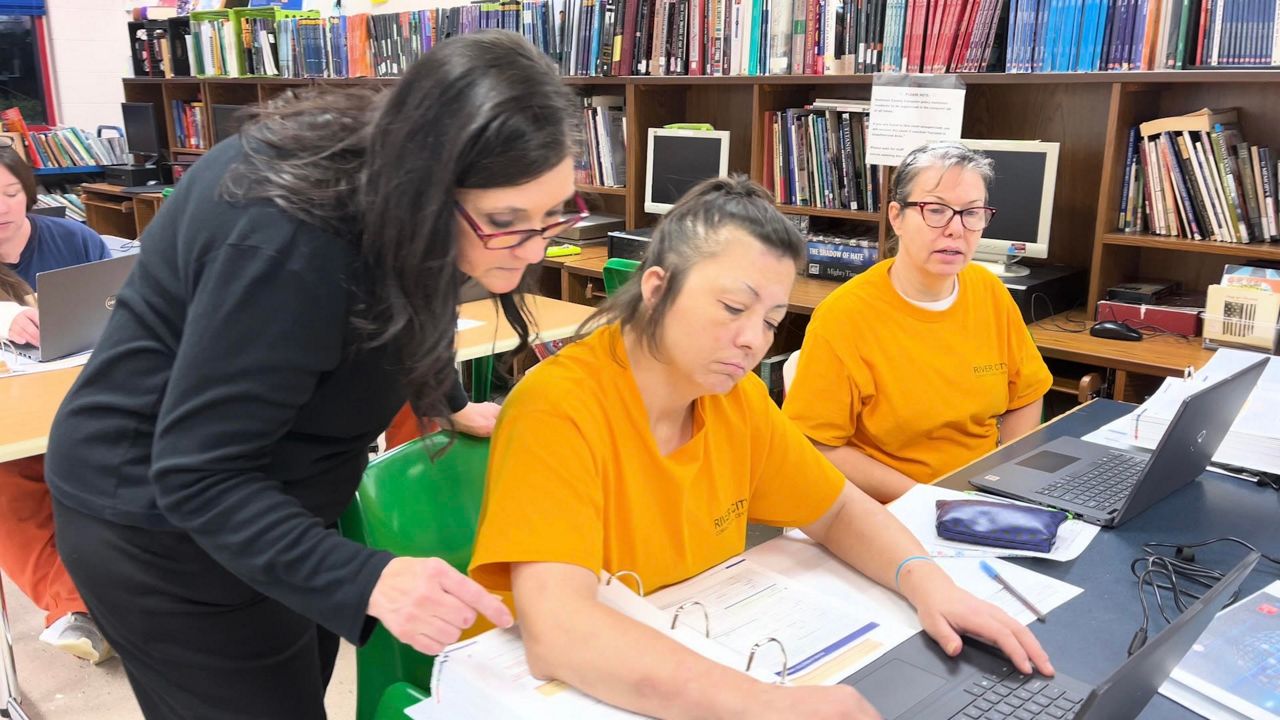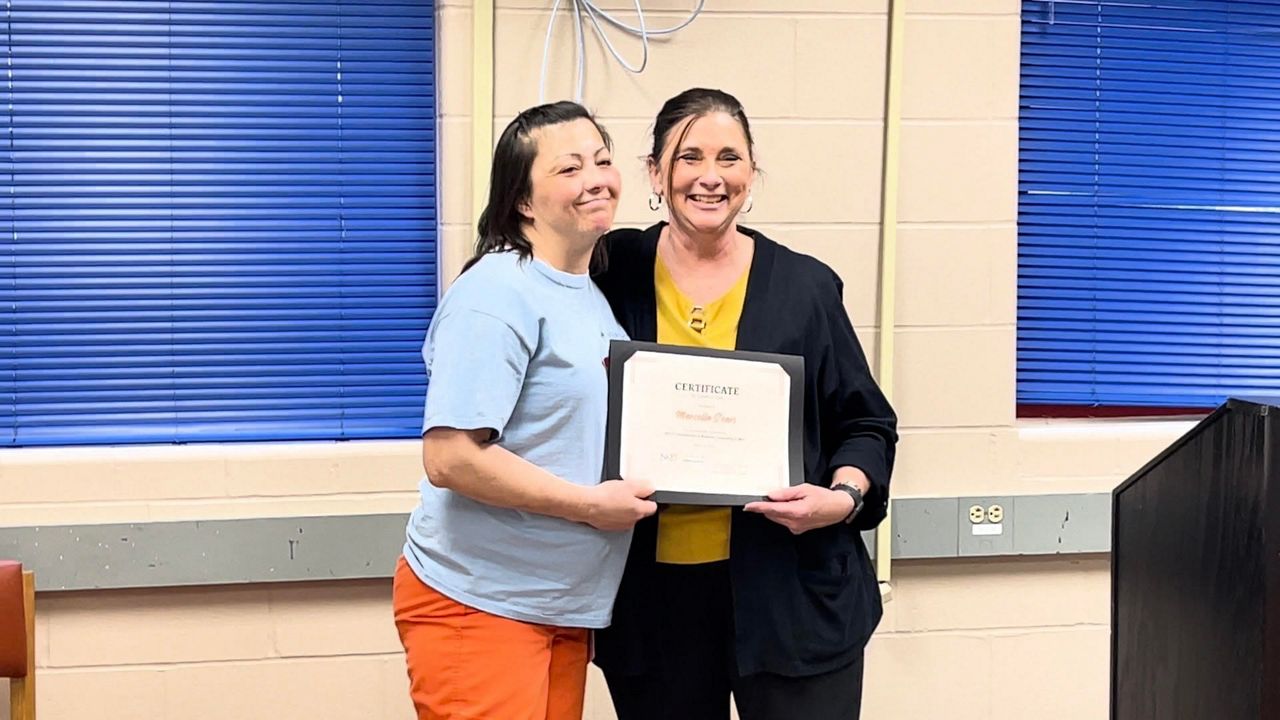CINCINNATI, Oh. — A program providing educational opportunities to incarcerated women just celebrated its inaugural cohort of students. The Second Chance Education program brought educators from Northern Kentucky University to the River City Correctional Center in Cincinnati.
Spectrum News 1 spoke to some women about what the opportunity meant to them, and how they plan to use it outside of jail.
Some days at River City Correctional, it’s difficult to find any brightness, or hope, as explained by inmate Kari Fellinger.
“We are felons and addiction has no face. So it’s a little bit more difficult for us to go out there and try to find a job when we have something like that that hinders us,” she said. “It could be a normal person, someone you wouldn’t even think of that could have these issues that they have to deal with. And they lose everything they have in an instant. You don’t realize that. So when you have to rebuild your life and you have to look for work, you have to know tools.”
The NKU Second Chance Education program provides tools by creating pathways to college and livable wages for people like Fellinger, and fellow incarcerated women Marcella Sears and Diana Linz.
The program was created by the College of Informatics in collaboration with the NKU social work program and was funded in part by NKU’s Success by Design Innovation Challenge in 2020.
It consists of training in basic computer concepts and terminology, and the professional use of Microsoft Word and Excel.
“It’s a class that I teach all the time here at NKU. It is three credit hours, and it includes concepts of computer usage like computer essentials like terminology. If you’re going to go buy a computer, what do you need to know? What is a RAM? How much hard drive do you need? That kind of thing,” said NKU Lecturer Sarah Mann.

Fellinger said the program has provided some of the hope she’s been looking for.
“I got down and out and I hung out with the wrong crowd and made poor choices. And that’s just something that I have to live with the rest of my life. But my failures are not my circumstances because I learned from them. I’m going to take this forward to produce something hopefully for other people to be able to see, take a bigger look at what failures they’ve had and turn their failures into successes, basically. Help the next person out there before it’s too late,” she said. “It makes you go from hopeless to hopeful.”
Participants can earn three college credits upon transfer to NKU once they leave the correctional center. College of Informatics faculty members developed and delivered the curriculum while social work faculty members evaluate program outcomes.
Sears said her stay at the correctional center may have been what’s best for her, and she plans on using her credits.
“When I got here, I came kicking and screaming. I didn’t really have sight of a future. I was just mad that I was here. So time and again river city has pulled me back whether I like it or not and helped me accountable and helped me realize that I do have a future and I definitely think that we could benefit from programs like this.”
Mann started coming to the River City Correctional in January to teach the pilot program.
“Some of the participants were, admittedly, when they came in, scared of using computers,” Mann said. “We had them create an actual resume for when they’re released so they can hopefully get a better paying job than they might have had before.”
Mann said she built relationships with all five participants in the class, and will continue to build on those relationships.
“Some of the ladies, you know, are there. They’ve made mistakes. They own up to their mistakes. But that doesn’t mean that we should judge them,” she said.
One woman was released a day prior to the reporting of this story.
“And because she doesn’t have a phone yet, she was able to use the laptop to video chat with her children and some of her family members that she hasn’t been able to touch base with recently. So that was very emotional, brought a smile to my face and a tear to my eye this morning when I read that,” Mann said.

On March 9, the first five graduates celebrated their completion of the program with their families. The College of Informatics presented them with certificates, as well as re-imaged laptops. Linz said she plans to take full advantage of both.
“I get out next Monday, and I plan on starting next semester at NKU. I’ve talked to them about that,” she said. “I’m anxious to be able to get online with my new laptop and see where I can go with this.”
Technology is always evolving. All three women said they plan to be part of that evolution.
“A lot of people think of technology as something very cold and impersonal. Of course it’s very human, right? When you empower a person to use technology in ways they had, it’s very human. When you empower a person to use technology in ways they had not imagined before, it opens so many doors,” said Kevin Kirby, Dean of the NKU College of Informatics.
The pilot was funded through university funds and funds from the College of Informatics. Moving forward, it would be funded by various sources, including grants.
NKU is discussing expanding the program and offering more classes in the future, as well as going to other correctional facilities.



